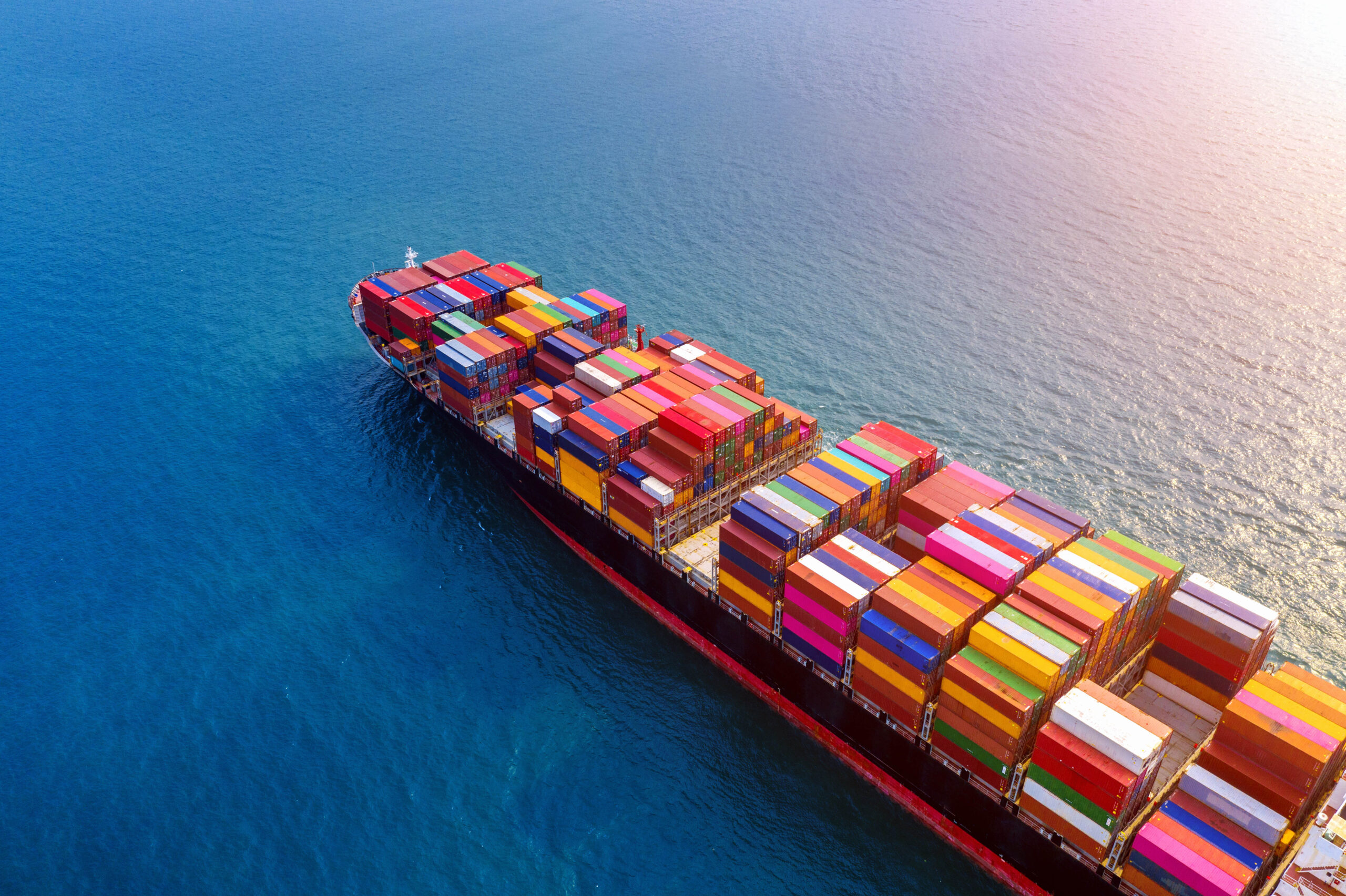by Bonface Orucho
Nigeria is implementing a ports makeover, ramping up investment to expand its ports as it seeks to untangle congestion, enhance efficiency, and seize economic opportunities through improved sea freight logistics.
President Tinubu and Maersk Chairperson Robert Maersk Uggla have reportedly discussed a US$600 million deal with A.P. Moller-Maersk. The two met during the World Economic Forum event in Riyadh.
In an interview with Nigerian news outlet, Kolapo Olapoju, Bayo Onanuga, special adviser on information and strategy to the Nigerian presidency, said the two parties were talking about “possible investment in Nigeria.”
While Maersk has denied any deal, despite multiple reports, talks with the giant shipper came just a few days after the Nigeria Ports Authority unveiled an agreement with Citibank for a US$700 million loan to revitalize the island ports of Apapa and Tincan in Lagos.
These latest developments are part of the bigger port makeover plans announced by the government earlier this year.
In March 2024, Gboyega Oyetola, the minister for Marine and Blue Economy, announced government plans to invest more than US$1 billion in the rehabilitation of the nation’s sea ports.
Last year’s performance slowdown underscores the urgent need for port rehabilitation. According to a January report from the ports authority, there was a significant 6% decrease in the handling of container units (TEUs) between 2022 and 2023, with some 1,566,162 units handled in 2023.
Port calls decreased to 3778 from 3958 in 2022. General cargo throughput, excluding crude oil, fell by 6.4% to 70.5 million metric tons, down from 75.3 million metric tons in 2022.
Rehabilitation efforts are fueled by the newfound efficiency and economic prowess of the Lekki Port, which opened for business in January 2023 with the legacy of being not only the country’s largest and first deep seaport but also the first fully automated port in the country.
Projections by Lekki Port Free Trade Zone Enterprise Limited, the company managing port operations, are that the port can generate direct and induced business revenue estimated at US$158 billion.
One year on, its impact is evident, having processed 6,076 TEUs of transshipment cargo last year against a capacity to handle 14000 TEUs. The bigger vision is to expand handling capacity to 2.7 million TEUs.
According to the NPA authority’s January statement, the cargo handled at Lekki is a major step in winning back “the cargo hitherto lost to our maritime neighbors”.
In 2024, performance projections are soaring, boosted by the arrival of a larger class of container ships, including the largest container ship to dock in Nigeria yet, the Maersk Edirne which boasts a capacity of 13,000 TEUs.
Lekki Port also hit headlines this year when it berthed CMA CGM Scandola, the first Liquefied Natural Gas (LNG)-powered vessel to berth not only in Nigeria but in the entire West African ports.
With an extensive coastline, the economic potential of Nigeria’s maritime and blue economy sector is immense.
OnePage Africa, a pan-African research outlet, says the West African country is currently failing to tap up to US$101 million in revenue from the maritime sector.
Major investments in port infrastructure are underway across Africa. Countries like South Africa, Morocco, Algeria, Angola, Egypt, and Senegal are pumping billions into upgrading existing ports and constructing new ones, signaling a significant boost in maritime infrastructure development beyond Nigeria.
In South Africa, US$7 billion is being invested to upgrade the Port of Durban in a facelift aiming to increase handling capacity to 11 million TEU from 2.9 million.
Egypt’s cabinet has greenlit the development of a tourist port on the Ras al-Hikma peninsula, while Ghana is also upgrading its ports.
A 2024 strategy paper by the Nigeria Ports Authority shows ongoing reforms have seen its revenue improve from US$226 million in 2022 to US$314 million in 2023.
bird story agency
Nigeria is embarking on a significant ports makeover to address congestion, enhance efficiency, and capitalize on economic opportunities in sea freight logistics. Discussions have been held between President Tinubu and Maersk Chairperson Robert Maersk Uggla about a potential $600 million investment, although Maersk has denied any formal deal. This follows a recent $700 million loan agreement with Citibank for the rehabilitation of Lagos ports Apapa and Tincan.
Earlier this year, Nigeria announced plans to invest over $1 billion to rehabilitate its seaports, primarily due to a 6% decline in container handling and a 6.4% drop in general cargo throughput between 2022 and 2023. The efficiency of the newly opened Lekki Port, which is Nigeria’s largest and first fully automated port, further fuels these efforts. Lekki Port has processed significant transshipment cargo and aims to expand its handling capacity to 2.7 million TEUs.
The Nigeria Ports Authority (NPA) reports increased revenue from $226 million in 2022 to $314 million in 2023 due to ongoing reforms. Major investments in port infrastructure are also seen across Africa, including projects in South Africa, Morocco, Algeria, Angola, Egypt, and Senegal, emphasizing a continent-wide boost in maritime infrastructure.
Nigeria's maritime and blue economy sector holds significant economic potential, with further efficiency and expansion expected to generate considerable revenue.






